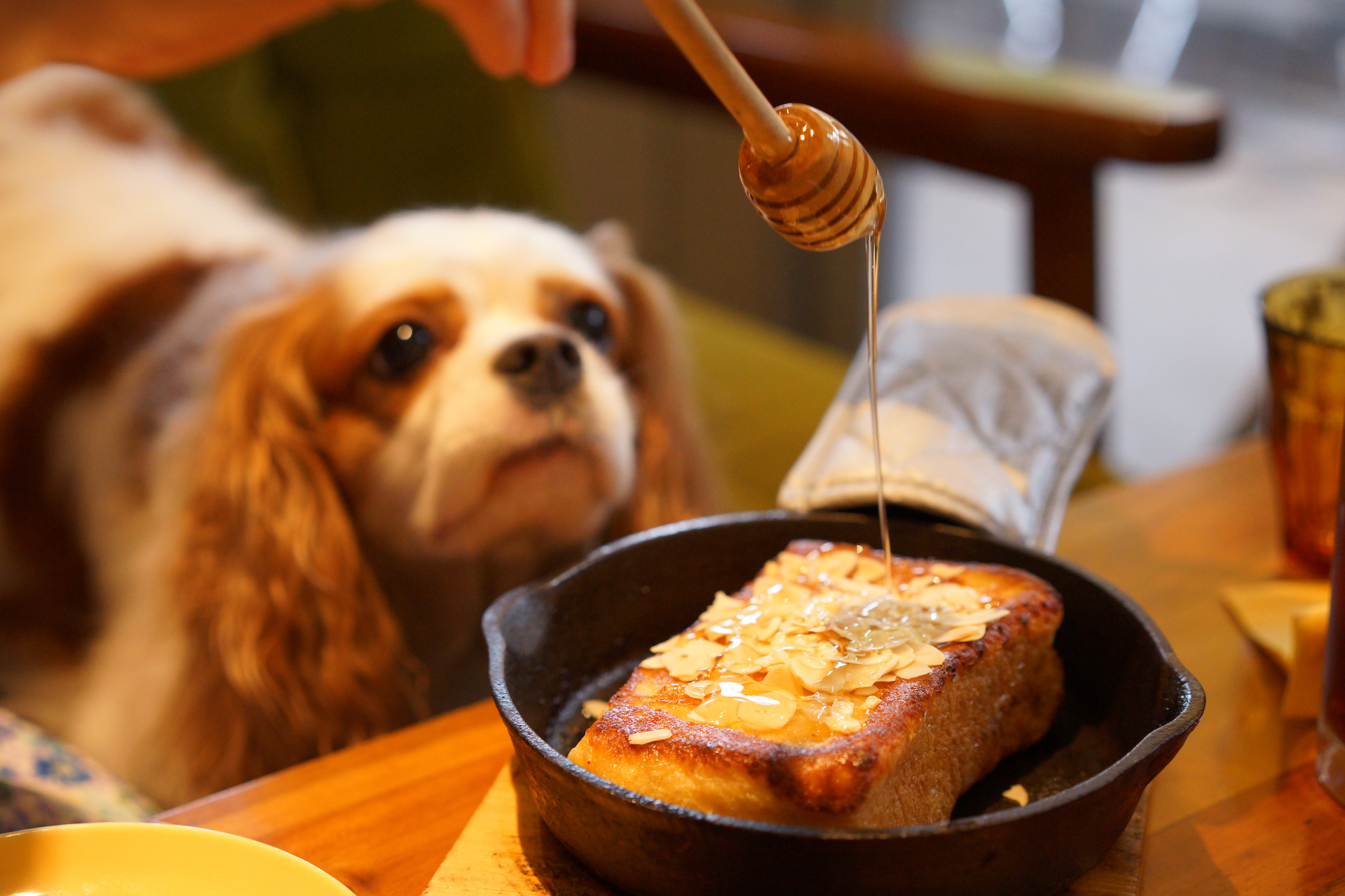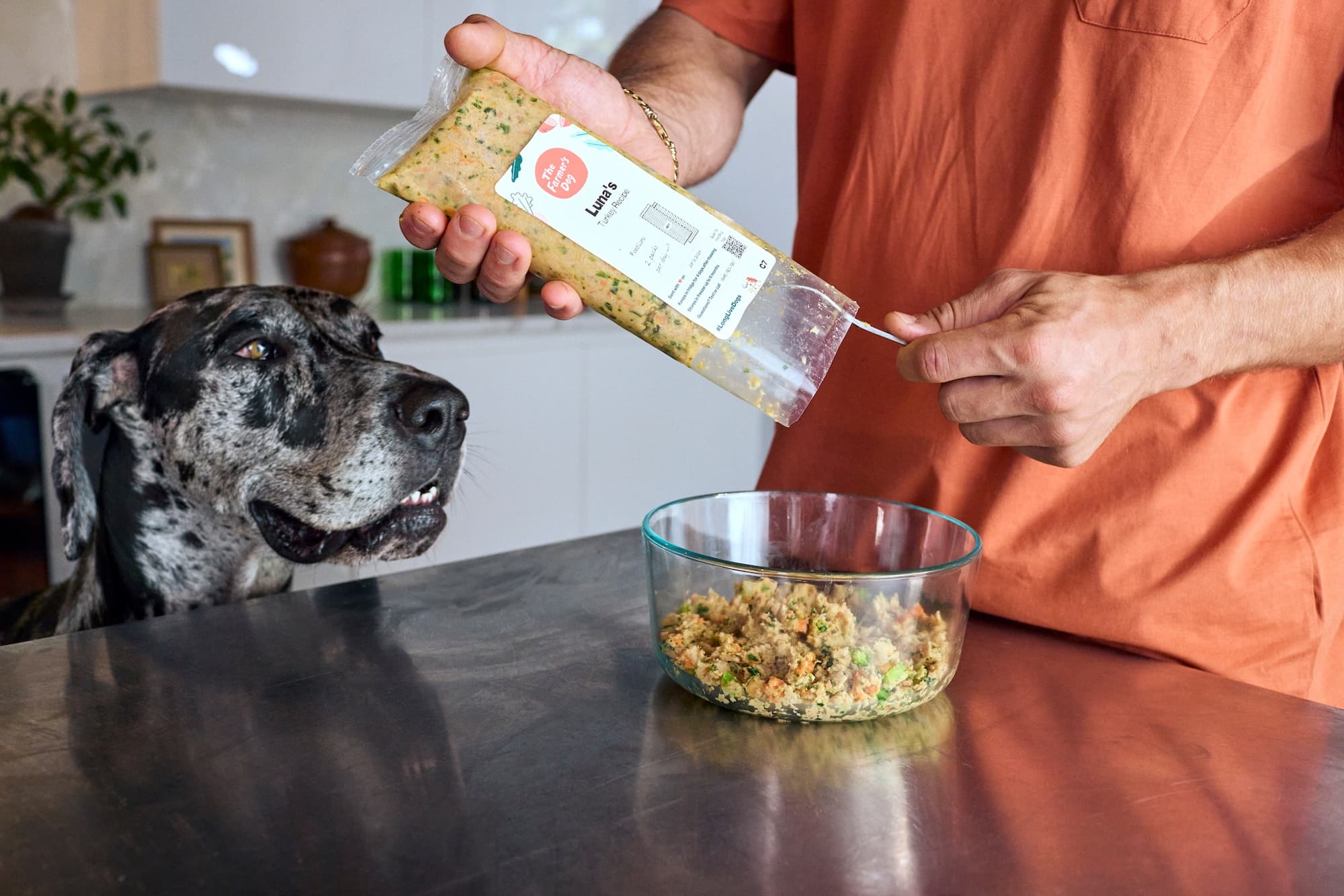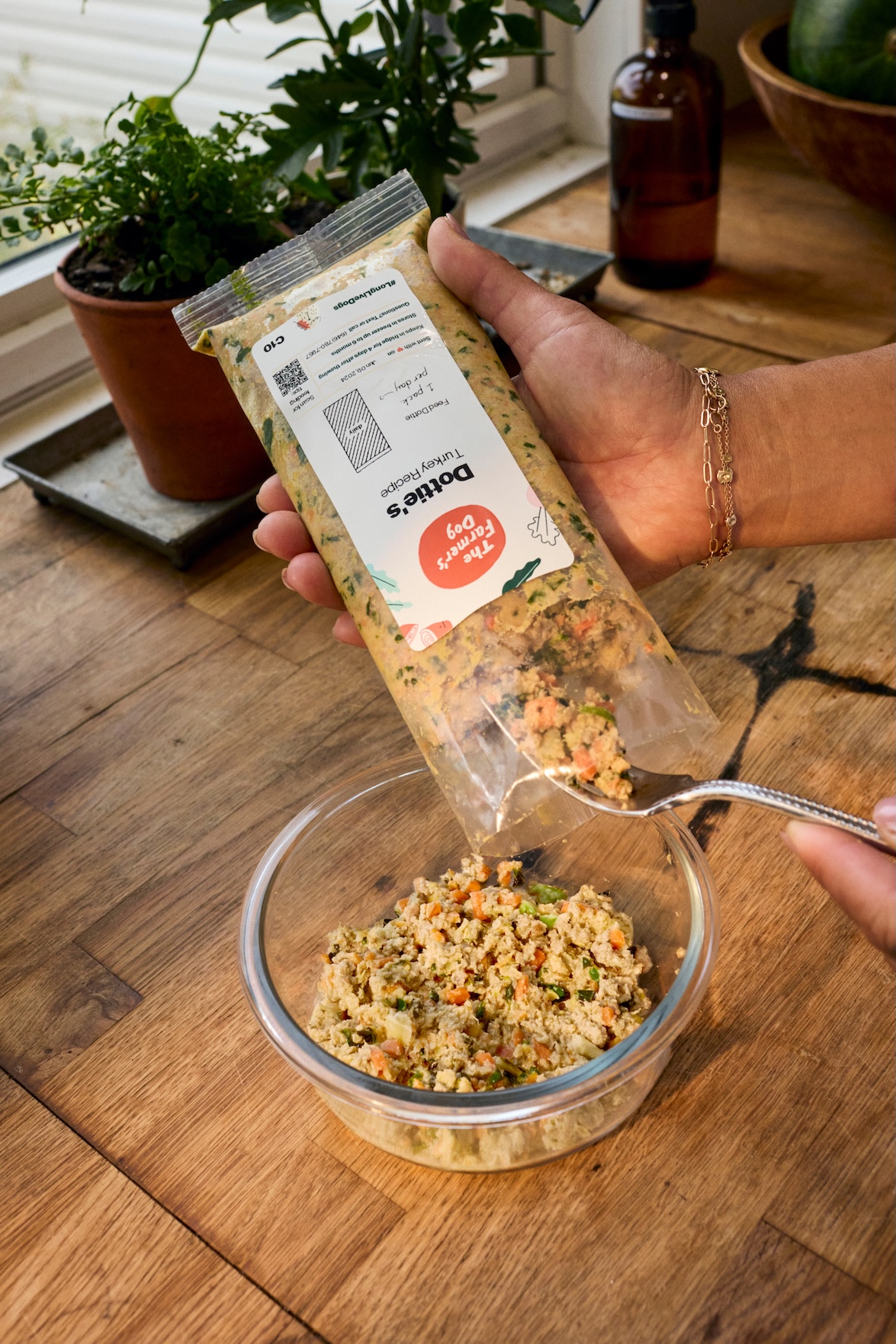Can your dog have honey? Yes, adult dogs can eat honey, in very small amounts.
You’ve probably read about some of the health-preserving properties of raw honey for humans. While studies haven’t proven that all these benefits extend to dogs, honey is generally safe for dogs to eat in moderation, and may have some health perks.
Because it is almost entirely composed of sugar, honey should be treated with caution, and consumed only occasionally.
Key info on honey
Honey is a thick, sweet substance produced by honeybees from the sugary secretions of plants. It is typically used as a sweetener in human foods and contains about 65 calories per tablespoon. Honey is high in simple carbohydrates, containing about 17g carbs per tablespoon with negligible amounts of protein and no fat to speak of. It does contain a host of vitamins including vitamins C, D, and K, antioxidants, and minerals like zinc and magnesium.
Raw honey is known to have antiviral, antifungal and antibacterial properties. Whether and how much these properties apply to common canine health issues is a matter of debate.

What are the benefits of honey for dogs?
Fans of feeding raw honey, including some integrative veterinarians, say that honey can help with an assortment of canine health issues. Among them: allergies. Raw honey is said to act almost like a vaccine when it comes to dogs’ environmental allergies, introducing a tiny amount of flower pollen so their immune system creates antibodies against a response to the airborne pollen. Honey also contains quercetin, a polyphenol that has antihistamine effects. The key here is to use raw and local honey (which will contain the same pollens the dog will encounter in their day-to-day environment). Some vets also say that honey has no impact on allergies.
Just as people use honey to soothe a cough, raw honey (Manuka honey in particular) has been used to treat kennel cough in dogs. Honey has also been used to treat stomach upset, and as a topical treatment for wounds and skin problems.
If your dog has any of these conditions, be sure to speak to your vet first about treatments.
What are the risks of honey for dogs?
Whatever its benefits, exercise caution and restraint if you choose to feed honey to your dog.
Because honey is high in sugar and calories, it can contribute to weight gain. It is not recommended for dogs who are overweight, for puppies, or for diabetic dogs because it has a high glycemic index rating. In significant amounts, sugar can cause tooth decay. If you choose to feed your dog honey, you may want to brush their teeth after to be safe.
How much honey can a dog safely eat?
Limit your dog’s intake to no more than one teaspoon in a day for larger dogs (and feed occasionally, not daily). For small dogs, the serving size should be even less–around ½ teaspoon or less in a day. To feed your dog honey, place it on a spoon for them to lick off. You can also dip a piece of fresh fruit in a touch of honey and give it as a treat, or drizzle a tiny amount over their food. As with any new treat, start small to see if your dog likes or tolerates it.
What kind of honey is safe for dogs?
When feeding your dog honey, it’s best to choose raw honey that hasn’t been processed.
Do not feed honey to puppies under 18 months or any other dog with a compromised immune system. And don’t feed it at all if your dog is allergic to bees!




